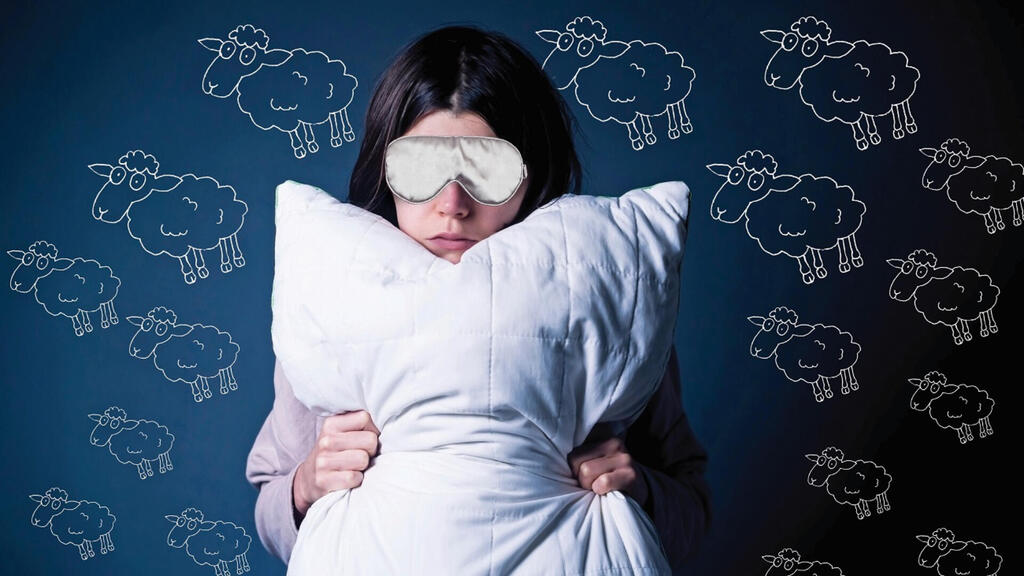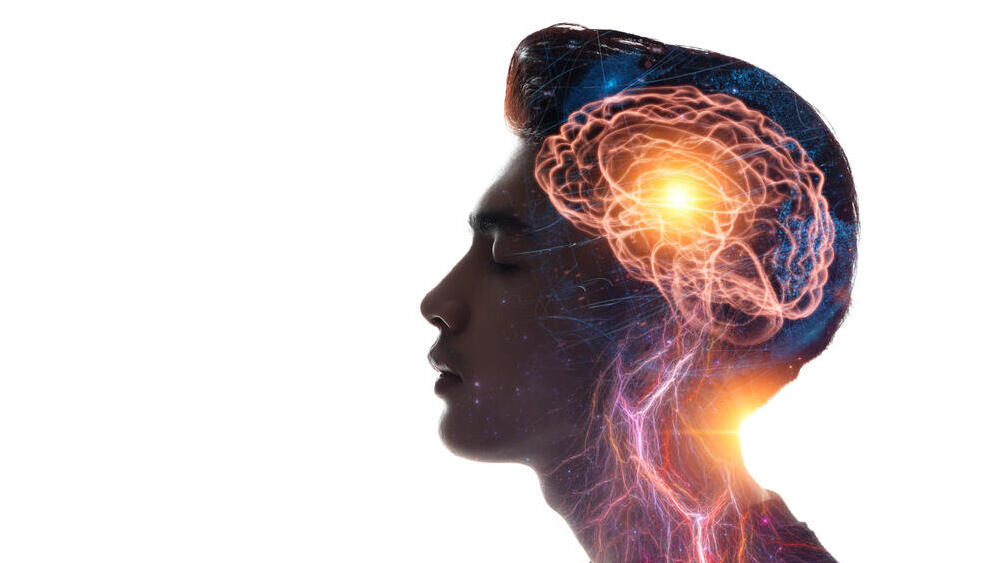Getting your Trinity Audio player ready...
It's no secret that a bad night's sleep can lead to fatigue, irritability, and trouble concentrating. However, the consequences of poor sleep may extend far beyond the next day, as a new study from the University of California, San Francisco (UCSF) reveals. Researchers found that inadequate sleep is associated with accelerated brain aging in middle-aged adults.
While previous studies predominantly examined the impact of poor sleep on older adults (65+), this new research focused on a younger demographic. The 589 participants had an average age of 40 when the study began. Over five years, they completed two sleep surveys, and 15 years later, underwent brain scans.
3 View gallery


Inadequate sleep is associated with accelerated brain aging in middle-aged adults
(Photo: Shutterstock)
“We found that poor sleep over five years — especially when associated with symptoms of insomnia — was strongly linked to brain aging,” the researchers stated. They assessed six markers of poor sleep quality: short sleep duration, difficulty falling asleep, trouble staying asleep, early morning awakenings, fatigue during the day, and poor overall sleep quality.
The findings, published in Neurology, the medical journal of the American Academy of Neurology, underscore the broader implications of sleep disorders on brain health. “These results are significant because they show that the relationship between sleep disorders and brain health extends beyond old age. Poor sleep in early middle age may already contribute to accelerated brain aging,” the journal reported.
Accelerated brain aging has been linked to cognitive decline and patterns associated with Alzheimer’s disease. Interestingly, the study did not find a direct relationship between sleep duration and brain aging.
“Sleep duration in midlife can be influenced by numerous factors, such as work, stress, multitasking, or menopause,” the researchers noted. “This suggests that the link between sleep duration and cognition may be more complex during this stage of life.”
Quality vs. quantity
The research highlights that sleep quality, rather than quantity, plays a more critical role in brain health during midlife. “High-quality sleep is essential at any age; it’s a fundamental biological necessity,” said Dr. Amit Green, a psychologist and sleep specialist at Assuta Medical Centers.
“This study focused on individuals aged 40–50, not children or seniors. The good news is that the cumulative damage from sleep deprivation can be addressed through proper treatment, even reversing the effects on brain function,” Green added.
Why Does Poor Sleep Impact the Brain?
“When we’re awake, the brain accumulates a substance called adenosine, which generates feelings of tiredness,” Dr. Green explained. “During sleep, adenosine breaks down. Sleep’s role is to clear this buildup, restoring our alertness.
 Dr. Amit Green
Dr. Amit Green“Caffeine, for example, works by blocking adenosine receptors in the brain, creating a sense of wakefulness. However, insufficient sleep disrupts this process, affecting every cognitive ability, from fine motor skills to problem-solving, concentration, and memory. It even impacts basic functions like our perception of temperature, hunger, and satiety.”
Sleep’s underrated importance
Dr. Yaron Dagan, head of the Sleep Division at Assuta and a family medicine expert, emphasized society’s tendency to undervalue sleep.
“People fully recognize the importance of nutrition, for instance, but often disregard sleep. Yet, sleep is just as critical,” Dagan said. “You can go on a hunger strike, but you can’t go on a sleep strike. Eventually, the body and brain will force you to sleep because they can’t function without it.”
Modern culture often encourages sleep deprivation, whether working late, pulling all-nighters, or binge-watching TV. “Medicine, too, primarily focuses on our waking hours, rarely studying what happens to the body at night. Yet, sleep comprises a third of our lives and is crucial for survival,” Dagan explained.
Dagan highlighted how organisms, including humans, need sleep for survival. “Animals that sleep less tend to have shorter lifespans. Growth hormone, for example, is released only during sleep. Disrupted sleep prevents its proper secretion, hindering bodily and brain renewal. This is why the term ‘beauty sleep’ has some truth to it—insufficient sleep impairs skin cell regeneration and overall health.”
Sleep also plays a vital role in memory consolidation. “During sleep, the brain processes and organizes memories from the day, supporting learning and cognitive functioning. Sleep deprivation disrupts this system, contributing to brain aging,” Dagan added. Brain scans from the UCSF study visually demonstrated how poor sleep alters brain anatomy.
The costs of sleep debt
Dr. Green reiterated that sleep is the third most vital necessity for survival, after air and water. “When we accumulate ‘sleep debt,’ our bodies suffer. It affects focus, memory, problem-solving, mood, coordination, and reaction times,” he explained.
Research has even shown that sleep-deprived drivers perform worse than intoxicated drivers, yet society doesn’t treat sleep deprivation with the same urgency.
What Causes Poor Sleep in Midlife?
Several factors can disrupt sleep in middle age, Dr. Green noted.
Sleep apnea: Common in men aged 40–50 and often linked to obesity, snoring, and breathing pauses during sleep.
Insomnia: Often stress-induced, insomnia is a modern epidemic. “Stress turns sleep into a stressful event itself, leaving people tossing and turning all night,” Green said.
Irregular sleep schedules: Sleeping at inconsistent times — waking up too early or going to bed too late — also impacts sleep quality.
Women may be more vulnerable to insomnia due to higher levels of stress and anxiety, Dr. Green explained. “For every three patients seeking help for sleep issues, two are women. Conversely, sleep apnea is more common in men. Regardless of gender, the consequences of sleep deprivation are the same.”
Tips for better sleep
Dr. Dagan recommended creating a consistent sleep schedule that allows 6–8 hours of sleep per night. “Most modern sleep problems are self-inflicted — people simply don’t give their sleep enough respect,” he said.
 Dr. Yaron DaganPhoto: Assuta
Dr. Yaron DaganPhoto: AssutaHe advised avoiding screens — including phones, computers, and TVs — before bed. “Screens emit light that disrupts melatonin production and interferes with sleep. Stop using them at least 30 minutes before going to bed.”
Dr. Green added that avoiding caffeine six hours before sleep is essential. “Alcohol should also be avoided. While it initially induces drowsiness, it later causes wakefulness, disrupting sleep.”
Maintaining a healthy lifestyle is equally critical, including regular exercise, proper nutrition, managing stress, and maintaining a healthy weight. “Sleep is as vital as food and water. Prioritize it as part of your overall health routine,” Green said.
The silver lining? Sleep-related issues are largely reversible. With proper diagnosis and treatment, most sleep problems can be resolved.
“Our bodies and brains depend on sleep for survival and optimal functioning,” Green concluded. “If you’re struggling with sleep, seek help. With the right approach, it’s possible to restore healthy sleep and repair its effects.”
Get the Ynetnews app on your smartphone: Google Play: https://bit.ly/4eJ37pE | Apple App Store: https://bit.ly/3ZL7iNv



